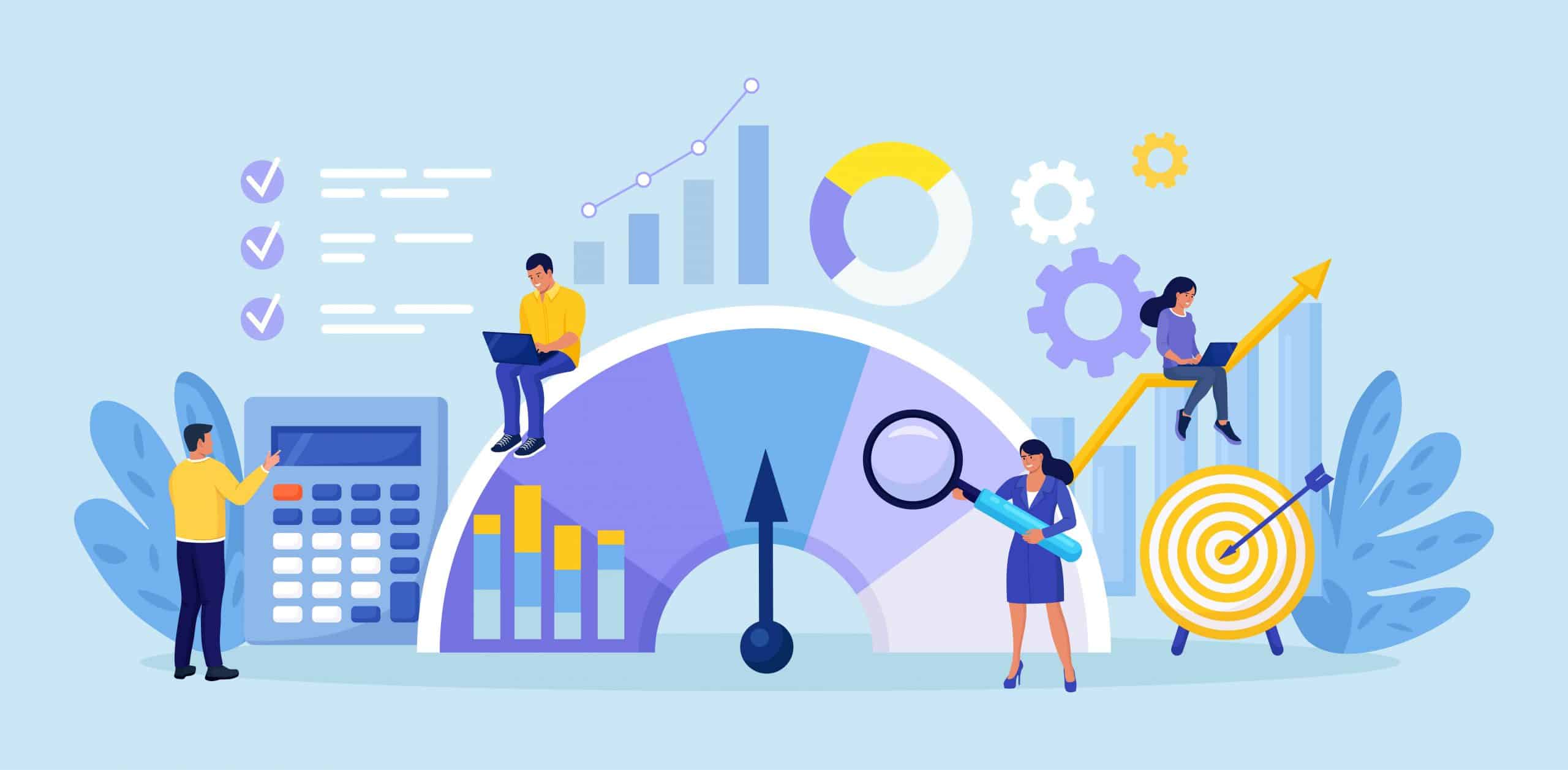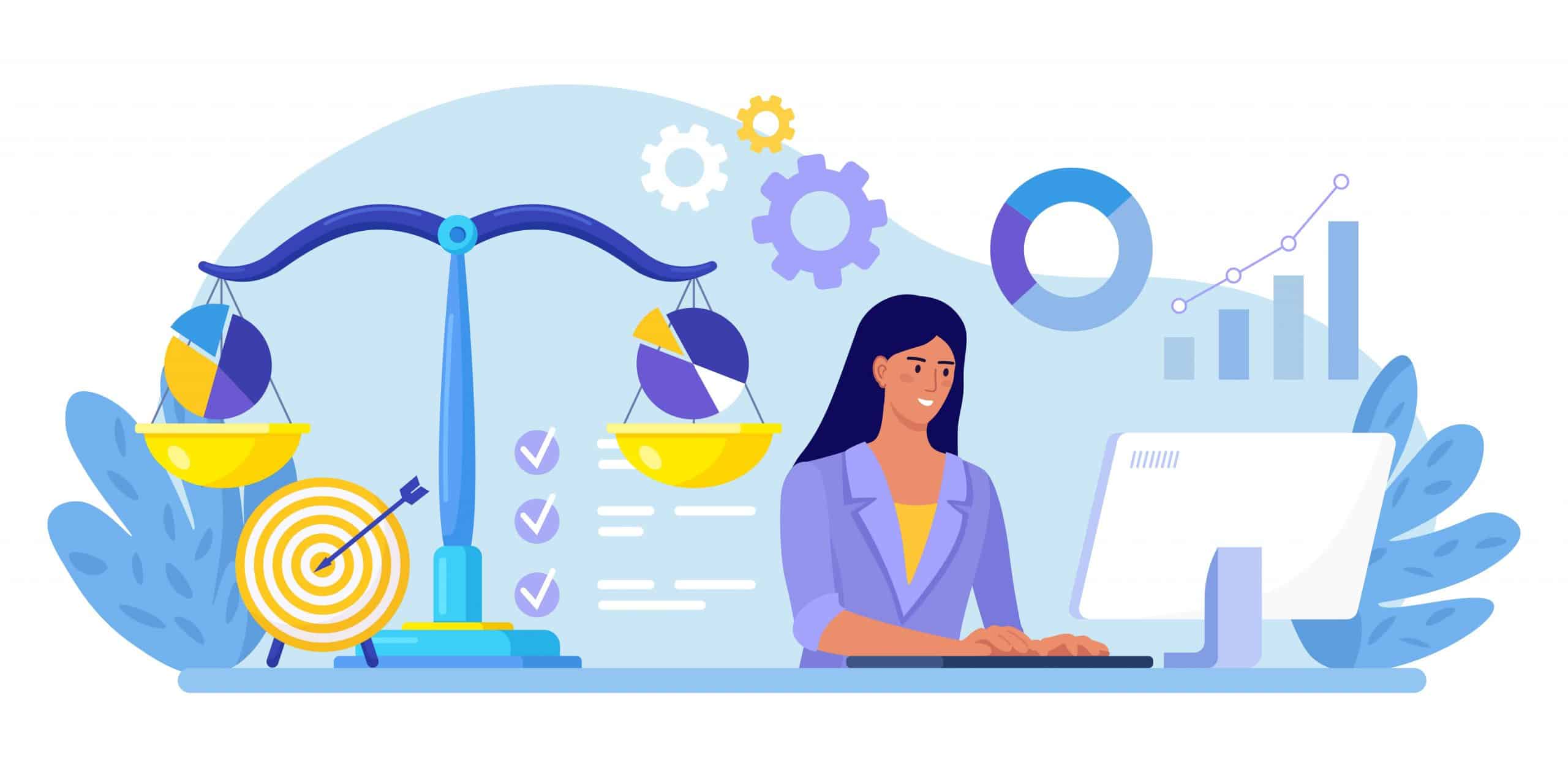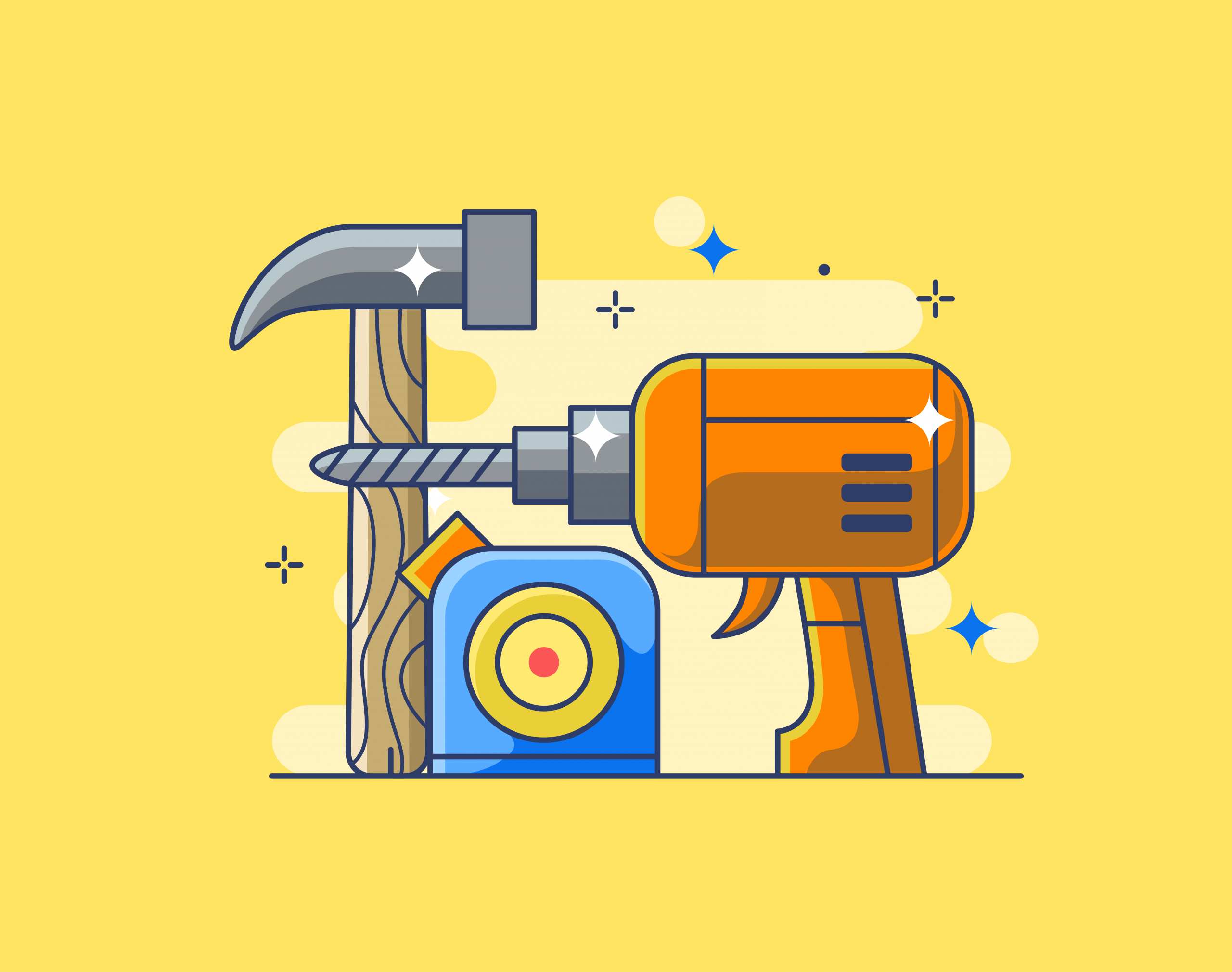Ecommerce Website Development: Everything You Need to know in 2023
According to Statista, the global online retail market was about $5.2 trillion in 2021. It is projected to grow by 56% in the coming years to about $8.1 trillion by 2026.
Isn’t this an indicator that e-commerce is one of the fastest-growing industries with enormous potential and a significant impact on the modern economy? It offers great opportunities for product promotion and opens up new horizons for business development.

If you sell goods/services online or are just starting your journey in this direction, this article is for you. GetTrusted vendors will tell you what is developing an e-commerce website and how to find a performer to help you implement your project.
What Is an E-commerce Website?
It is a platform that allows a broad audience to buy goods/services online. Virtual marketplaces are designed to simplify the entire buying process, from product search to secure payment processing.
- Amazon is a prime example of a successful e-commerce site. It has become synonymous with online shopping thanks to its extensive product catalog, user-friendly interface, and efficient fulfillment system.
Online platforms have become indispensable tools for businesses in various industries. By leveraging the Internet’s capabilities and advanced technological achievements, they enable businesses to:
- Reach a broader audience, including individuals from different countries.
- Optimize planning, monitoring, and management of business processes.
- Enhance marketing effectiveness and drive sales growth.
The e-commerce sector presents impressive prospects for those seeking to work and thrive in it.
What Is E-commerce Website Development?
It involves various activities, including design, programming, content development, testing, integration with third-party services, and promotion. The aim is to achieve the business goals of online platform owners and meet visitors’ needs.
Developing a virtual marketplace is a smart investment in the growth of your business. It unlocks unique opportunities for you and helps increase visibility both locally and globally.
The Meaning of E-commerce Web Development for Business
Despite the popularity of e-commerce development service, not all entrepreneurs understand the advantages of an online store for business. Especially if there is already an offline retail outlet.
- Please note that this is not just a “business card” created for the sake of having an online presence. An e-commerce site is considered to be a very effective sales tool.
There are many advantages of developing an online store in terms of business. Let’s go over the main ones.
Reduced rent and personnel costs
You don’t need to rent extra offices, organize workplaces, and hire many workers. You can save several hundred or even thousands of dollars a month. In the case of an online store, your expenses are reduced to monthly fees for Internet access and hosting and labor costs.
Accelerating market entry
It takes 1-2 months to develop and launch a fully functional online store. In this case, you will be making a profit the very next day the virtual trading platform is up and running. In the case of an offline store, you will only spend this time looking for suitable premises, not to mention the opening procedure itself.
Expanding audience coverage
The retail outlet is limited to a street, a district, or a city. For an online store, there are no restrictions. You have access to a huge market with an audience comparable to the country’s total number of Internet users. The main thing is to identify potential customers and establish effective online interactions.
24/7 availability for customers
Your online store is available 24/7. This means that customers can buy goods at any time. Remember that consumers have their own habits and preferences. Many do not have free time during the day and therefore make online purchases in the evening and at night.
Unlimited range of products
Expanding the assortment of the offline store requires more storage space. This means that it is worth being prepared for an increase in the cost of rent. The assortment of an online store is not limited in any way. To expand it, all you have to do is create several new product categories or product cards.
Business process automation
You can automate almost all the critical processes of an online store: from adding items to the site to confirming an order. Implementing automated tools in a physical store is much more expensive and, in some cases, may not be a feasible task.
User behavior analysis
Analytics is one of the key and perhaps most significant advantages of online shopping. Thanks to it, you can track and analyze the actions of visitors on your site, evaluating the effectiveness of every dollar invested in online advertising.
To get all the benefits of running an online business firsthand, you need to choose a contractor with experience creating online stores.
Steps in the Web Development Process for E-commerce
The e-commerce development process includes the following steps:
- Market research
During the process of building the website’s semantic core, specialists conduct research on search queries to attract potential customers. Using various SEO tools, they compile a list of queries grouped based on their meaning. It helps structure the future web resource.
The marketing department thoroughly analyzes competitor websites and the entire niche to develop a concept that will distinguish the online store from similar platforms. At this stage, persuasive “tricks” are also set, aimed at capturing the attention of potential customers.
- Drawing up TOR for the design
A specialist draws up terms of reference based on the structure of the site and the customer’s wishes for design. It includes the following specifications:
- Store name.
- Preferences for the color scheme of the design.
- The adaptability of the site.
- Approximate number of products, categories, and sections.
- List of pages to be displayed.
- Targeted actions for each page.
- Preferences for the design of product cards.
- Design of the shopping cart and the buyer’s personal cabinet.
At this stage, the concept of the store’s appearance is formed, focusing on the presentation of goods and creating an attractive design that will encourage visitors to buy.
- Developing a design
At this stage, a UI specialist develops the design of the online store based on the provided terms of reference. Their main task is to bring the brand’s atmosphere to the customer, create an original and harmonious design, and consider the features and preferences of the target audience.
It is crucial that the site not only looked attractive, but also was easy to use.
- Programming and layout
Programmers utilize adaptive design to create versions of web pages for both desktop and mobile devices. One of the critical aspects is ensuring fast page loading. To achieve this, programmers optimize the source code and reduce the size of images without compromising their quality.
At this stage, specialists configure the website’s administrative panel to meet the client’s needs and integrate the necessary software modules. They also implement dynamic site search and all the functionality required for smooth operation. Also, CRM, API, any other 3rd party applications must be integrated on this step.
- Filling with content
Interesting and unique content attracts the attention of the target audience. A specialist publishes content (text, pictures, videos) that will interest visitors and increase conversions. Product items, descriptions, costs, etc., are also added to the site.
- Testing
This is a mandatory step in which experts check the web resource for the following criteria:
- Design adaptability. Assessment of the correctness of the site’s display on various devices’ screens, as well as its compatibility with web browsers.
- Usability. Analysis of the ease of navigation on the site, search, and purchase of goods.
- Software part. Checking the correctness of the software modules and all the site features.
- Website speed. Evaluating the ability of the online store to handle a large number of visitors and process their requests without delay.
If testers find bugs during testing, they fix them before moving the site to a separate server.
- Domain and hosting selection and backup
The domain name should accurately and concisely reflect the activities of the website. When choosing, it is vital to consider its audibility and memorability.
Along with the name, hosting is acquired – the place where the store’s files will be hosted on the internet. When making a choice, you should consider factors such as traffic limitations, support for programming languages, ease of use of the administrative panel, and other factors.
- Marketing and promotion
The online store is ready for full operation, but an important task remains: attracting customers who will actively make purchases.
Experts are engaged in content optimization, setting up contextual advertising, and using other tools to improve the site’s visibility in search engines and increase conversions.
E-commerce Website Development Options
There are three main ways to build such a site: using a CMS, based on SaaS, and from scratch.
CMS-based creation
CMS (Content Management System) is software designed to manage website content. For example, WordPress or WooCommerce are widely used for building websites.
Modules, which are mini-programs that work in conjunction with your CMS, allow you to expand the capabilities of your virtual marketplace and perform specific functions. Creating an online store using additional modules, such as limited payment integrations, may be challenging.
Given the specific nature of such work, e-commerce web development requires developers with experience implementing industry projects on a particular CMS.
Creation based on the SaaS platform
If you have a standardized online store without a customized approach but are dissatisfied with the limitations of open-source CMS platforms, you might consider a SaaS platform.
SaaS is a software service for website development. More specifically, it is a model that involves paying for the use of the service. For example, Shopify is one of the best e-commerce platforms. You can create an online store in a few minutes, paying a subscription monthly or annually.
SaaS platforms eliminate the limitations of open-source CMS, giving the user more flexible options:
- Change the design and settings without requiring programmers.
- Large catalog from 400 to 60 thousand items.
- Adaptability for all types of mobile devices.
- Multi-language store.
- Integration with various payment systems, social networks, Google Shopping, and marketplaces.
When using the site, you will not have to worry about hosting extensions, upgrades, and security. If you are looking for professional help to move the data from your existing online store to a platform with advanced features, such as Shopify, you should hire a Shopify migration company.
Creating from scratch
If you want to build a feature-rich and unique online store, you should turn to an e-commerce website developer.
Developing from scratch has several advantages over off-the-shelf solutions:
- Unique functionality according to the tasks and needs of the business.
- High speed thanks to optimized functionality.
- Exclusive design for brand identity.
- Unlimited scalability.
When choosing an e-commerce store development, it is important to consider the project’s budget, the complexity of implementation, deadlines, and the desired functionality of the site.
Functionality of an E-commerce Website
Today, we can observe trends in the design of online stores, such as animation, 360-degree product previews, advanced filtering, dynamic search, and more.
However, their implementation does not guarantee high conversion rates or a good user experience. There are certain elements that every online store should have to remain relevant and competitive.
We invite you to familiarize yourself with the most valuable features that attract online shoppers.
Filtering and comparing products
Creating a simple site structure is important so visitors can easily find the categories and products they want. Filters will help narrow the choice and show items that meet the buyer’s requirements. The ability to make comparisons will make it possible to make an informed decision and buy faster.
Store search
This is a valuable feature for online stores with physical retail locations. Customers can find the desired products even before visiting the store. Online search lets shoppers check the availability and location of items they want.
It’s handy, convenient, and time-saving, especially when the store offers a wide range of products and more information is needed to accurately determine the item’s location.
Mobility
The adaptive design provides the most convenient use of the online store on the screens of mobile devices.
- Walmart increased sales by 98% after optimizing its mobile site.
It doesn’t matter how vast your assortment is. A handy mobile app for your customers can improve sales and boost your search engine rankings.
Special offers
Some online platforms promote special offers using conventional marketing methods like email, social media, text messages, etc. Others display special offers in the website header.
When customers realize they are getting a special price, it motivates them to purchase and spend more time searching. If online stores consistently use promotional campaigns and even dedicate a menu item and page for them, it will increase sales and improve SEO.
Similar products
With the “Similar Products” feature, you can achieve the effect many marketers desire: increasing users’ time on the website. Let’s say you’ve added an electric kettle to your cart. A section appears suggesting several other interesting models.
This feature helps increase sales and creates a more appealing and convenient user experience. Customers receive additional offers that align with their interests and needs. It helps keep them on the website and increases the likelihood of purchasing.
Additional payment methods
An online store must have advanced payment methods in a world where Apple Pay and PayPal are popular. You need to understand who your customer is and implement the most effective solutions.
If your site limits payment options, be sure to explain why. For example, an e-commerce site may not offer Bitcoin as a payment option because it is not reliable enough.
Contact page
An online store’s “Contact Us” feature plays a crucial role in building customer trust. When they see available contact information and easy ways to get in touch, they feel confident that the store is ready to provide them with help and answers to questions.
This is especially important when selling high-quality goods or tech products, as consumers often have questions before purchasing.
Return policy
Customers in the online store cannot physically inspect and evaluate the goods. So, clear and transparent return policies are an important factor influencing the decision to order. This will allow your customers to feel secure and confident in their purchases.
How to Choose an E-commerce Website Developer?
In today’s market, there are many offers from developers. But how to choose a professional and reliable e-commerce web developer?
When working with freelancers and unproven outsourcing companies, you may encounter the following problems:
- poor and irresponsible task resolution;
- exceeding the agreed project deadlines;
- lack of understanding of your business goals and corporate style;
- leakage of confidential information to competitors;
- lack of control over the contractor and delegated processes;
- risk of subcontractor bankruptcy.
Here are some factors to consider before you move on to signing a contract with a contractor:
- Experience. Pay attention to how long e-commerce website developers have been in the market, their services, and their experience.
- Reputation. The easiest way to get an outside opinion is to read customer reviews. You can also study expert ratings of companies. This will help you understand how competent is in e-commerce website development services.
- Approach to development. The strategy of e-commerce web developers should coincide with yours or at least be understandable and convenient for you. This is very important because the company’s values are traceable to a certain extent here. And you won’t feel comfortable working with a contractor whose values you don’t share.
- Portfolio. Company cases will help you form an opinion about the level of the potential contractor, see the development strategy in action and understand whether it suits you.
- Pricing. Too low prices can indicate that an e-commerce developer is in bad faith. Give preference to companies with flexible pricing policies that strive to adapt to your needs.
Base your choice on your needs. Don’t choose a developer or e-commerce web development company until you understand your current goals and what you want to achieve.
Conclusion
If you decide to start an e-commerce business, you have many important decisions to make along the way.
Regardless of whether you plan to create an online store based on CMS, SaaS platform, or from scratch, you may need e-commerce web development services.
GetTrusted specialists will help you find professional developers who will implement a successful and profitable web resource. You will avoid the problems that businesses often face when searching for and working with contractor companies.
Why GetTrusted:
- Verified and reliable performers. We will find the ones who will speak your language, understand your business culture, and adhere to the necessary design patterns, SDLC standards, management strategies, and more, all at no cost to you.
- Strict quality control over the product created by our performers. We also have strict development and project implementation guidelines in place, ensuring the success of your project.
- Escrow Service guarantees the protection of your finances. This means that your money is transferred to the performer only after the quality of the work has been confirmed and you have given your approval.
By collaborating with us, you can be sure that you will receive a reliable and user-friendly digital solution delivered strictly within the agreed-upon timeframe.
FAQs
What do I need to develop an e-commerce website?
Creating a virtual marketplace involves the following stages:
- Market research
- Goal setting and planning
- Design creation
- Programming and web development
- Content creation
- Testing
- Domain registration and hosting selection
- Payment and delivery setup
- Marketing configuration, social media profiles, etc.
To streamline this process, consider utilizing the services of a developer.
What are the best e-commerce development companies?
Everyone determines for themselves which company is the best for them. It depends on your specific needs, business goals, and line of business.
How do I choose an e-commerce website development company?
When selecting a company, it is necessary to consider:
- Experience
- Approach to development
- Reputation
- Portfolio
- Pricing
What are the types of e-commerce websites?
There are six main types of e-commerce:
- B2B (business-to-business)
- B2C (business-to-consumer)
- C2C (consumer-to-consumer)
- C2B (consumer-to-business)
- B2A (business-to-administration)
- C2A (consumer-to-administration)
What technologies and platforms are commonly used in e-commerce website development?
When developing e-commerce websites, different technologies and platforms are used depending on project requirements and company preferences. The most popular ones are:
- CMS such as Magento, WooCommerce, Shopify, OpenCart, and Drupal Commerce.
- SaaS platforms: Insales, Gollos, Recommerce, Sellbe, Shopium, Prom and Nethouse, Shopify, etc.
How long does it take to develop an e-commerce website?
Deadlines depend on the chosen method of development, the complexity of functionality, and the design of the future site.
What does an e-commerce web developer do?
This is a specialist who creates new and maintains existing online stores. They help the customer with tasks related to developing the site’s appearance and the server part. Other tasks include testing and searching for bugs.










